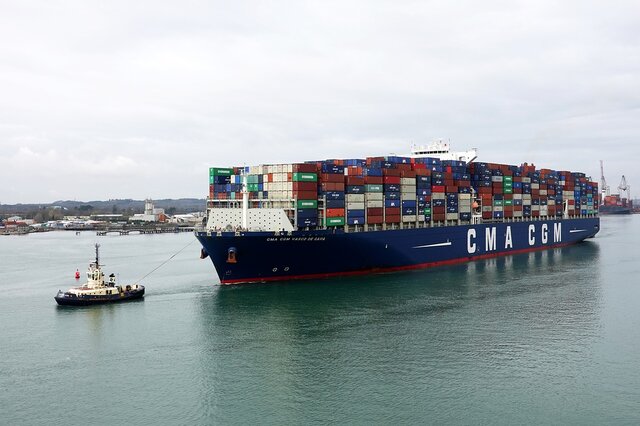Geneva – The United Nations (UN) warned on Tuesday that carbon emissions from shipping were growing, calling on the vast industry to scrap old, polluting vessels and upgrade infrastructure to speed up its green transition.
The UN’s trade and development agency UNCTAD highlighted the vital role shipping plays in the global economy, with over 80 percent of all traded goods in the world moved by sea.
But while the world is becoming increasingly aware of the need to slash greenhouse gas emissions to avert catastrophic climate change, the global maritime fleet saw emissions rise by 4.7 percent between 2020 and 2021 alone, it said.
“That number is heading in the wrong direction,” UNCTAD chief Rebeca Grynspan told reporters ahead of the launch of the agency’s annual report on maritime transport.
Grynspan, a former vice president of Costa Rica, also raised concerns about the average age of ships sailing the seas currently standing at nearly 22 years old.
“Our ships pollute more as they get older,” she said, stressing the need for “a whole new generation of ships… that can use the most cost-efficient fuels and can integrate seamlessly with smart digital systems.”
Adapting ports
UNCTAD urged more investments in technical and operational improvements in a bid to shrink the industry’s carbon footprint, including switching to alternative, low or zero-carbon fuels and optimising operations.
But Tuesday’s report warned that the dire global economic outlook, coupled with surging borrowing costs and regulatory uncertainties, would likely hamper the investments in new ships needed to reduce greenhouse gas emissions.
It called for a “predictable global regulatory framework for investing in decarbonisation”, as well as increased support for developing countries in the energy transition.
And it emphasised the urgent need to adapt ports to the impacts of climate change.
If ports want to remain competitive, they will need to be able to serve green-technology ships, including providing clean fuel access and adapted maintenance, it said.
These needed changes are coming at a time when the global shipping sector has been rocked by a string of global crises.
“For the last two years, the maritime industry has suffered from tremendous disruption,” Grynspan said.
“Covid-19, the war in Ukraine, climate change and geopolitics have blocked ports, pushed up prices and closed entire shipping routes,” she noted.
Growth slowed in 2022
Tuesday’s report showed that global maritime trade suffered a severe hit during the first pandemic year of 2020, shrinking 3.8 percent, but rebounded last year, jumping 3.2 percent.
“Unfortunately in 2022, this recovery basically lost steam,” Shamika Sirimanne, UNCTAD’s technology and logistics chief, told reporters, pointing to geopolitical tensions, the slowing global economy, and the new waves of Covid-19 infections in China that shuttered factories.
The sector is expected to see moderate growth this year of 1.4 percent, and for the period from 2023 to 2027, maritime trade is expected to see 2.1-percent annual growth on average, she said.
But while marking an improvement from this year, that is far lower than the long-term trend before the pandemic of 3.3-percent annual growth on average in maritime trade.
As for freight costs, Sirimanne said they were expected to remain higher on average than prior to the pandemic, and also more volatile.
One reason for that is the rampant consolidation in the industry, UNCTAD said, pointing out that over the past five years, the four largest carriers increased their market shares to control more than half of the global capacity.
Grynspan said it was vital for the international community to “maintain an open and competitive market”.
The giant size of the companies, but also the growing size of the ships themselves are worrying, UNCTAD said, warning that smaller ports and smaller countries could not accommodate them.
Follow African Insider on Facebook, Twitter and Instagram
Source: AFP
Picture: Pixabay
For more African news, visit Africaninsider.com


